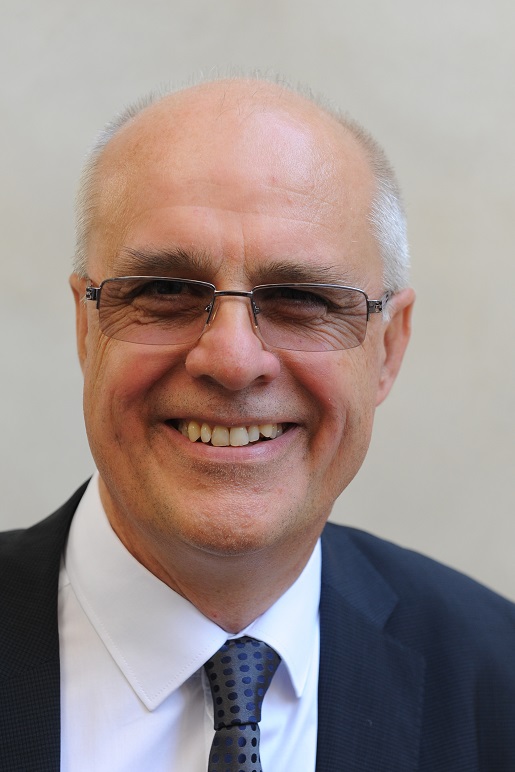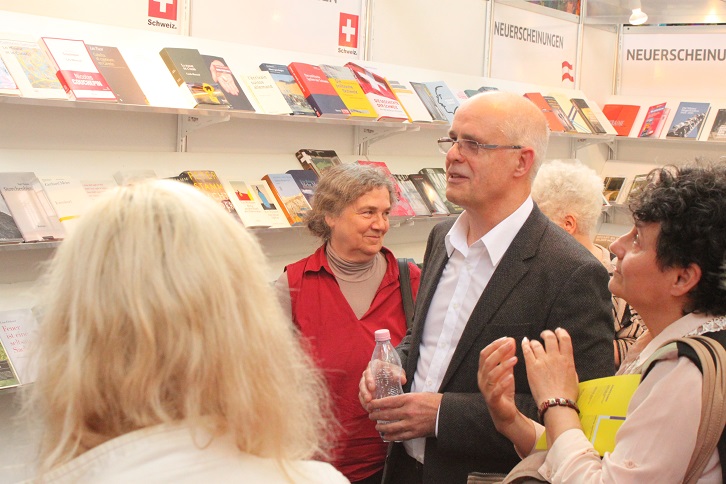Our alumni volunteer, Raghawendra Sisodia (PhD student at the University of Miskolc) made an interview with Michal Černý who is currently Head of Science and Research Unit at the Ministry of Foreign Affairs in the Czech Republic. He is also a former student of Hungary and our alumni member.
Hungary has a long tradition of higher education and academic excellence with state-of-the-art research facilities, people with outstanding creativity, knowledge, focused on delivering the best on their part for the human mankind, country, and the world. This world-class education system and cutting edge research and innovation will set a milestone for accelerating future scientific research, economic development. That’s why Raghawendra Sisodia decided to make an interview with some of the eminent international Hungarian alumni.

Raghawendra Sisodia: First, I would like to ask from which country you come from and what is the most important place to visit there and its importance? What made you decide to follow a career in diplomacy?
Michal Černý: I come from Prague, the capital of Czechia, the Czech Republic. But I was born in Czechoslovakia and that was the country where I joined the foreign service in 1990. And so, my first posting was at the Czechoslovak Embassy in Budapest. That was an extraordinary and exciting period, just after the collapse of communism in Central Europe, when Poland, Hungary and Czechoslovakia were the first to start restoring their market economies and re-establishing a system of democratic institutions. At the Foreign Ministry in Prague, there were both members of the former communist staff and newcomers like me who started their diplomatic careers without any previous experience (I used to work as a translator and interpreter in the eighties), just full of enthusiasm about serving the new democratic political system. I was still in Budapest when Czechoslovakia was peacefully divided into two parts – Slovakia and Czechia. On the 1st of January 1993, those who opted for Czech citizenship moved to a new place. It was me who notified the Hungarian Foreign Ministry of the establishment of the new diplomatic mission. For one and a half years I oversaw the Czech Embassy until the first ambassador handed over his credentials.
Raghawendra Sisodia: What kind of decisions do you think is tough to make for a diplomat? What have been the main challenges of working in the varied political environments you have? What have been the most rewarding aspects of your work?
Michal Černý: After my return to Prague in 1995 I took a challenging post in the foreign policy department of the office of President Vaclav Havel. Having the opportunity of working closely with this eminent personality, who was shaping the new political reality in my country, had a profound influence on my life. It lasted only two and a half years, but it was most probably the turning point when I finally decided not to go back to my previous freelance job but to continue with a diplomatic career.
The decision was all except obvious. One must consider how tough it is, especially for the family, when you have to move your wife and your children from one place to another, changing the schools, the friends etc. It is a high price to pay for a diplomatic career. But it has a bright side, of course. For me, the most important thing was the fact that this job in the foreign service offers a wide variety of working experience – depending on the world region you are posted to. You don´t need to change the employer in order to get a completely different job. Sitting in Bruxelles or Berlin is incomparably different from being posted to Africa or the Middle East. Your working duties, your priorities, the way you spend your free time, the people you meet, all these are different. This kind of variety makes the diplomatic career so attractive to me.
Raghawendra Sisodia: Tell me something about your hobbies. What types of activities or hobbies do you enjoy outside of work?
Michal Černý: For those who like travelling and meeting new people, the diplomatic career may become not only a job but a hobby as well. I think that at certain periods of time this was my case too: following the fascinating changes in Berlin on the verge of the new millennium or discovering the mountains and deserts of Iran were experiences of this kind.
My postings to Budapest, Berlin and Vienna offered me another opportunity as well: exploring the life of the theatre. My passion for the theatre is deeply rooted in my life and my family. My parents’ career was linked to the theatre, just as my brother’s is, and my youngest son studies dramaturgy at the Academy of Performing Arts in Prague. Even my experience at the office of Vaclav Havel had a lot to do with performing arts – the president’s approach to politics was a playwright’s one.
During my second posting to Budapest as head of the Czech Center, I could fulfil my dream: cultural diplomacy in practice. Working “at arm’s length” from the government, which is the case of most of the European cultural institutes abroad, gives more independence and opens more widely the door for creativity than the status of a government representative. Looking back, I consider those five years the most productive time of my professional career.

Raghawendra Sisodia: How did you decide to study in Hungary?
Michal Černý: Why I decided to study in Hungary? I have been asked this question quite often. For in those times, the mid-seventies, studying abroad wasn´t as common a thing as it is nowadays. And there were no Hungarian relatives in my family, so it wasn´t so obvious why I decided to apply to study at ELTE. In fact, my decision had to do with the political circumstances in my country in those days. There were differences between the communist regimes in our region – the Czechoslovak belonged to the toughest ones. On the other hand, Poland´s and Hungary´s regimes were much more liberal, more open, with better lines of communication towards the West. That was attractive to me, and so I was considering applying for one of these countries.
Raghawendra Sisodia: What do you like the most about Hungary? What is one part of Hungarian culture that you are excited to share?
Michal Černý: The reason why I finally decided for Hungary was the language. Polish sounds very close to Czech; lots of my compatriots speak the language. But Hungarian is something very different, there is no other European language which can help you understand it – not even Finnish, despite belonging to the same (Finno-Ugric) family. That was the real intellectual challenge for me: Hungary, as a neighbouring country with a shared history, shared culture, common patterns of behaviour, a common sense of humour – but using a kind of weird language that no one can understand.
Raghawendra Sisodia: What was the most interesting thing you learned about the Hungarian culture? What do you like most about Hungarian people?
Michal Černý: The country provides an intriguing feeling, of something being very close and very distant at the same time. That’s how the Czechs perceive Hungarians. And that´s why I made the choice. If for nothing else, then at least to find the key to Hungarian poetry. After my studies, I came back several times for extended periods of time. Altogether I have spent so many years in Budapest that I feel home there. And I miss the city and its people each time I am away for longer.
Quick questions, quick answers
Raghawendra Sisodia: What’s your favourite Hungarian food?
Michal Černý: Brassói aprópecsenye
Raghawendra Sisodia: What was your favourite coffee shops, restaurants or pub that you miss in Hungary?
Michal Černý: Paprika vendéglő at Thökoly str., Kisüzem Bar at Kis Diofa str.
Raghawendra Sisodia: What are your favourite Hungarian cities?
Michal Černý: Budapest, Pécs, Zamárdi
Raghawendra Sisodia: What kind of famous places can you recommend for visiting?
Michal Černý: Parliament, Jozsef Katona Theatre, vine cellars of Villány